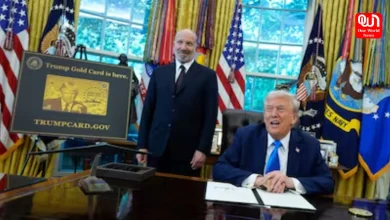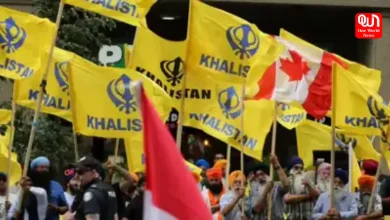Amazon is on fire: The unnatural fire in global resource needs accountability

World Wildlife Fund estimated that over a quarter of the Amazon will be without trees by 2030
Amazon is on fire and our social media accounts are burning with the latest updates. People are worried because it provides 20 per cent of the world’s oxygen. Brazil’s Amazon has witnessed record fires this year with more than 73,000 cases. There are 2,500 fires burning and ripping apart the world’s largest rain forest currently. There were only 40,000 cases of fires in 2018 in Amazon. These fires have emitted a huge amount of carbon and the smoke plumes are visible up to thousands of kilometres away. Brazil’s Fire incidents have seen a sharp increase this year (up to 85%) and most of it has occurred in the Amazon region.
According to activists, President of Brazil, Jair Bolsonaro’s anti-environment rhetoric has encouraged tree-clearing activists. In response, the president accused NGOs of starting the wildfires to defame the government.
Reasons behind Amazon fire
It is said that the illegal forest clearing to create land for farming is one of the biggest reasons for the fire. The sudden increase in fire is because of land degradation. Farming and land clearing reduces the availability of water, intensifies drought, and warms the soil which makes fire more frequent and fiercer. Since 1970s Brazilian people have been trying to create new land for cattle farming in the Amazon region of Brazil.
Researchers have found a significant number of degraded and unproductive pastures which offer new opportunities for livestock for farmers. New technical advancements also offer the chances of possibly transforming extensive cattle ranches into more productive and compact farms offering the same results while gobbling the less natural resources.
How it affects the World?
The rainforest of Amazon contributes to 20% of the total oxygen produced on earth. It is spread in 1.4 billion acres of dense forest which is half of the planet’s remaining tropical forest. 1 out of 10 known species in the world live in the Amazon forest.
The devastating fires of Amazon forest don’t just affect Brazil but also the world. Huge fires reduce the possibility of rains in South America and other regions of the world.
The world is losing important carbon sink and the fires are directly injecting carbon in the environment. If we will control fire now what would happen to our commitment to Paris Agreement to slow the Global warming and climate change?
How the World is reacting?
The fire started 17 days before, and now it is getting due attention. The national and state government of Brazil are on the frontline for the protection of these forests. International celebrities including Leonardo DiCaprio are playing a key role in spreading awareness.
President of France Emmanuel Macron and Prime Minister of Ireland Leo Varadkar has said that they would move to a veto to landmark European Union trade deal brokered with South American bloc Mercosur unless Brazil takes a strong action to protect the Amazon rainforest.
German Chancellor Angela Merkel has said that Amazon fires posed an acute emergency, and it will be an agenda in G7 meeting even though Brazil is not a member of the group.
The continued disability of Brazil in stopping the deforestation has reduced the International funding for conservation. Germany and Norway two largest donors have suspended their financial support.
The international community is likely to exert more pressure of Brazil to hold up their commitments on deforestation. Brazil will be asked to maintain existing commitments and agreements including restoration targets.
Is there any permanent solution?
Brazilian President has ordered the armed forces to fight record forest fires in the Amazon after International outrage over rising deforestation. Soldiers have been deployed in nature reserves, border areas beset by fires and indigenous lands.
Brazil has already a pioneering framework in place to stop the illegal deforestation in the Amazon. Deforestation which peaked in 2004 dramatically decreased after environmental governance and supply change interventions which were aimed to end illegal deforestation.
Read More – #RIPArunJaitley: Final Journey of the man full of ‘Wisdom’
Laws related to the environment were passed to develop a national program to save and preserve the forest. Clearing rates also fell down by more than two-thirds from 2004 to 2011. Private global agreements such as Soy Moratorium and Amazon Beef where companies agree not to buy cattle or soy linked to deforestation have also decreased clearing rates significantly.
There are financial, political, diplomatic tools which will gradually come in play to stop the wholesale clearing of the Amazon which will help in halting the devastating fires.
Have a news story, an interesting write-up or simply a suggestion? Write to us at info@oneworldnews.com







